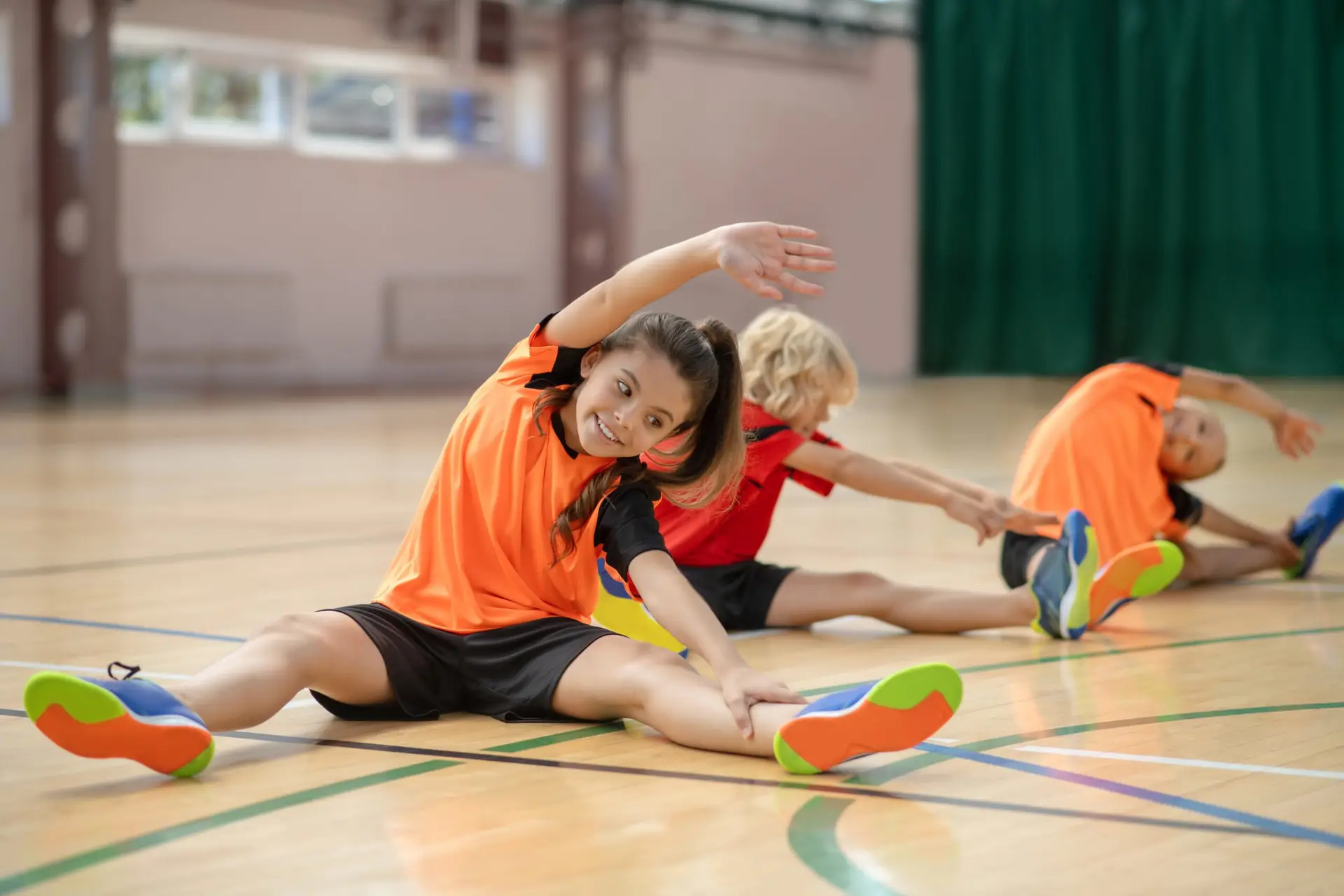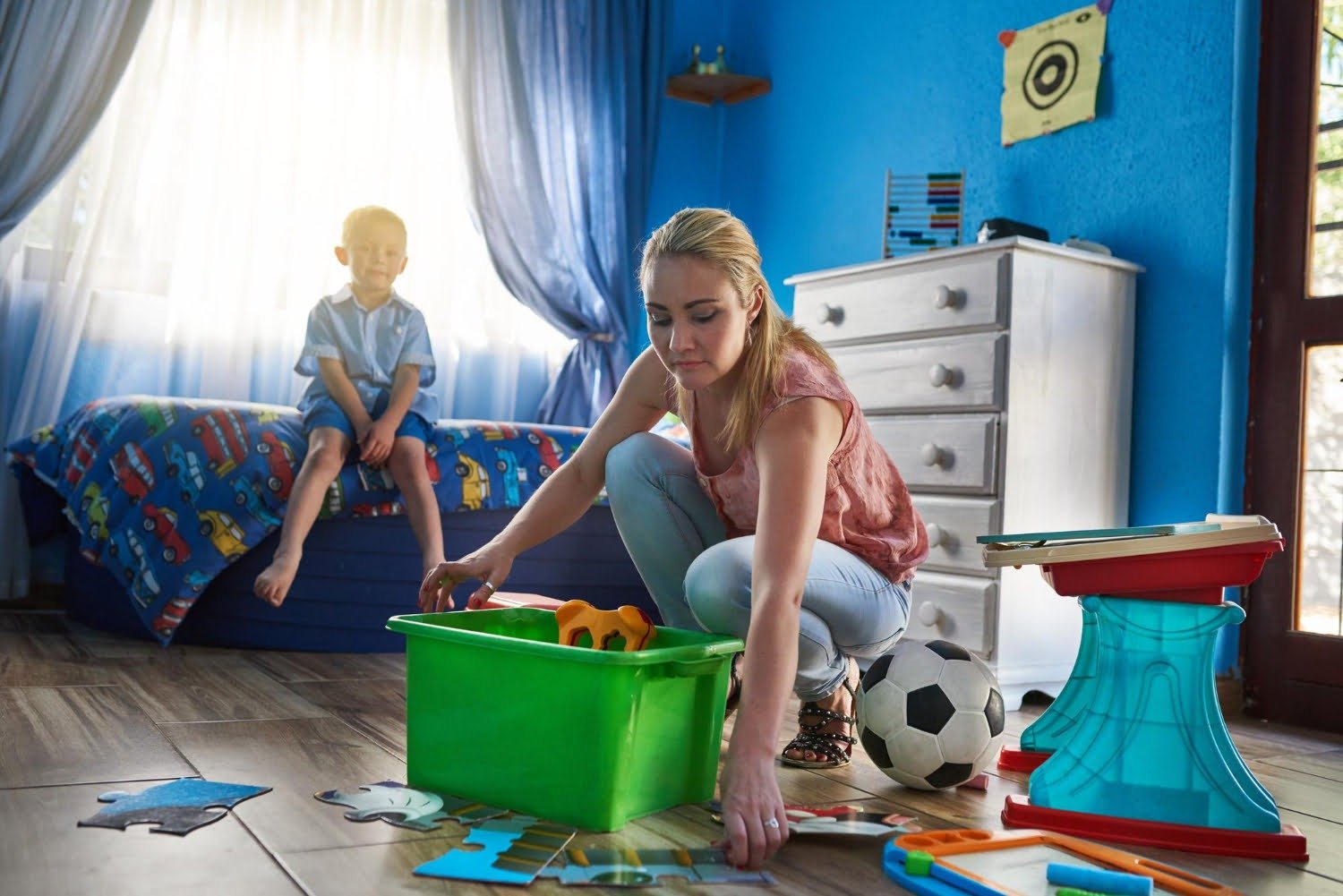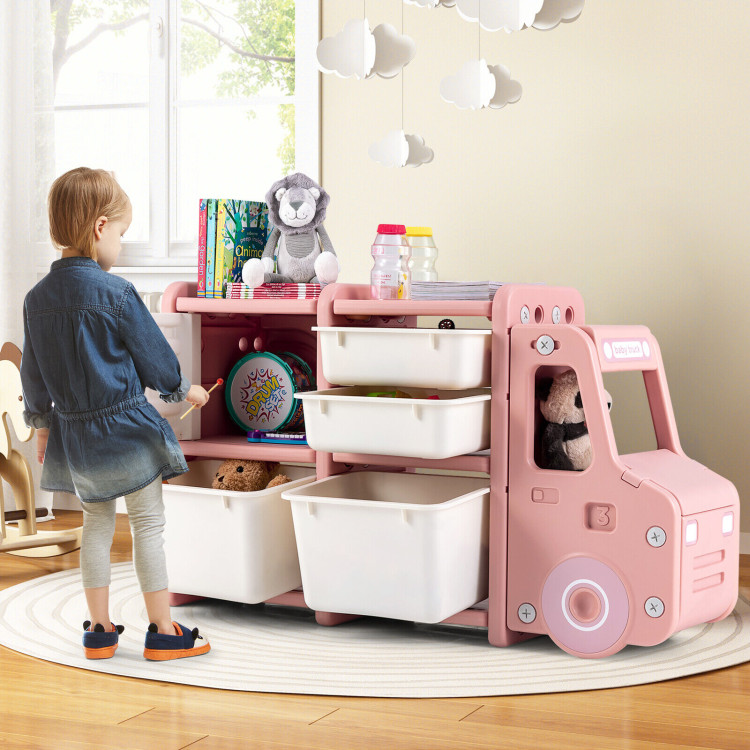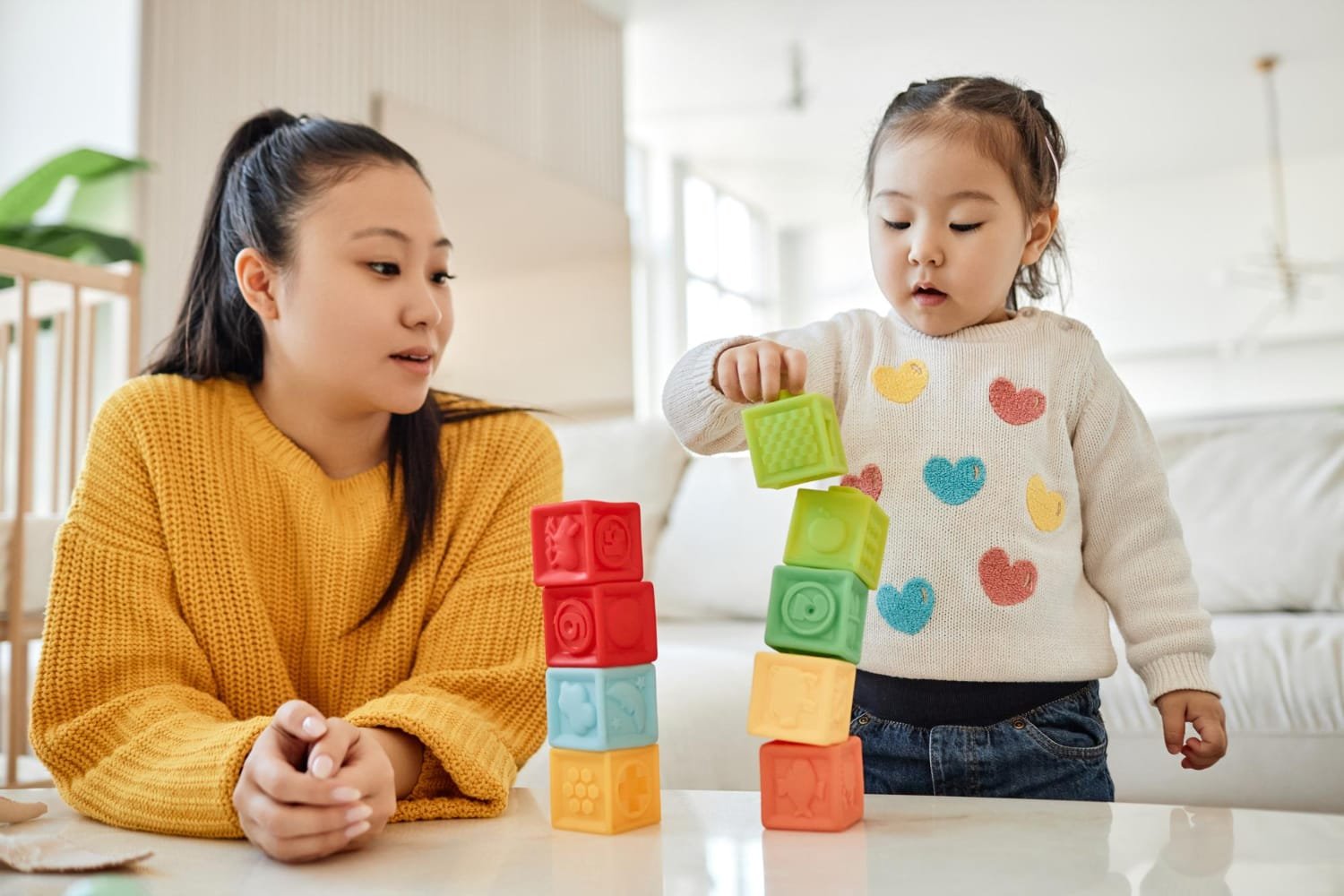Developing Organizational Skills in Children: A Guide to Unlocking Potential
If you have ever felt overwhelmed by toys, school papers, and misplaced shoes, welcome to parenthood. However, what if I told you there was a way to navigate this chaos? It is true! Our kids can develop organizational skills.
These skills are not just about keeping a tidy house, but they also play a significant role in their overall development. Imagine better grades, less stress, and a smoother path to adulthood. This is the power of organizational skills in children.
Childhood Development and Organizational Skills
These skills empower children to manage their time, resources, and environments effectively and are essential for success in many areas of their lives. Think of it as providing them with an invisible toolkit for success.
- Cognitive Benefits: Have you ever noticed how a messy room can make your mind cluttered? Similarly, organization skills help children improve their memory, attention, and problem-solving abilities. “Psychological Science” found that children with cluttered environments have more difficulty focusing and processing information. Conversely, children with organized spaces have an 11 per cent higher cognitive performance. They can better concentrate, remember information more efficiently, and approach challenges more clearly.
- Academic Success: Imagine your child tackling homework with a clear plan, a designated workspace, and the ability to prioritize tasks. Sounds dreamy. Organization skills are directly linked to academic success. Research published in the “Journal of Educational Psychology” indicates that students with solid time management and planning skills achieve higher grades and are likelier to complete their assignments on time. Organizing tasks, setting goals, and managing their time effectively are crucial skills for academic success.
- Emotional Well-being: Stress can adversely affect our health, and children are no different. A clutter-filled environment and lack of organization can lead to overwhelm, anxiety, and low self-esteem for children. Organization skills enable children to control their environment and emotions by giving them the tools to manage them. When they complete tasks successfully, they feel more in control and are less stressed. In a study published by the Child Mind Institute, the organization of children is associated with a reduction of anxiety and depression among those who have strong organizational skills.
- Life Skills: Organization skills are not just for now but for the future. They are essential for navigating the complexities of adult life, whether it is managing a household or pursuing a career. The foundation for our future success is cultivated in childhood. Children become responsible, accountable, and independent. They learn to set priorities, make decisions, and solve problems effectively. These skills are transferable to any area of life, setting them up for success in their personal and professional endeavours. According to a National Association of Colleges and Employers study, employers ranked organization skills among the top ten most desirable qualities in new hires. So, by instilling these skills in your children now, you are paving the way for a successful future.
Identifying Different Organizational Styles
We all have different organizational styles. What works for one child might not work for another. But knowing and catering to these individual preferences is essential to ensure the organization is fun and successful. This adaptability is a powerful tool in your parenting arsenal, allowing you to tailor your approach to each child’s unique needs and preferences. It’s not about fitting your child into a rigid system, but about creating a system that fits your child.
- Visual Learners: These children thrive in a visually stimulating environment. Think visual schedules, colour-coded folders, and labelled bins. They love colours, pictures, and diagrams. With visual aids, they can better comprehend events, remember where things belong, and grasp concepts.
- Auditory Learners: These children learn best through verbal instructions, discussions, and auditory cues. Think checklists read aloud, step-by-step instructions, and verbal reminders. Clear and concise communication ensures they understand the organization’s “why.”
- Kinesthetic Learners: The “doers” learn best through hands-on experiences and physical activity. They require hands-on sorting activities, physical organization of spaces, and active participation in creating organizational systems to understand concepts. The organization becomes more engaging and effective by incorporating movement and tactile elements.
The Foundation: Early Childhood (Ages 3-5)
By introducing simple, age-appropriate organization strategies to children during their early years, we can lay the foundation for future organizational skills. Children are like sponges, absorbing information and establishing habits rapidly. However, it’s important to remember that these skills take time to develop. Be patient and consistent in your approach, and you will see progress over time. The key is to start early and be persistent.
- Creating Routines: Remember the bedtime battles? Ah, the joys of parenthood! However, routines are crucial for young children, as they reduce anxiety and promote cooperation by providing predictability and security. Establish a simple daily routine in the morning, mealtime, and bedtime. Make sure your children know what happens in the order of events using visual schedules. Also, do not forget to clean up afterwards! Include tidying up toys and play areas in your daily routine.
- Playful Organization: Who says organization cannot be fun? To develop spatial reasoning and problem-solving skills, organize toys by colour, shape, or category. Play matching games and puzzles to develop these skills. Even simple tasks, such as putting away books or clothes, can be fun. Make it fun by singing songs, running, or making it a pretend game. Making organization enjoyable and engaging is the key.
Elementary School (Ages 6-10): Building Essential Skills
This is the time when children should build on the foundation laid in early childhood and introduce more advanced organization skills. As children enter elementary school, their world expands. They face new challenges, increased responsibilities, and a growing need for organization.
- Time Management Techniques: When your child insisted on wearing a superhero costume to school… on picture day? Kids often do not grasp time well, so introducing calendars and clocks can help them visualize time. When completing tasks, break them down into smaller, manageable steps to avoid overwhelm. Use timers to help children stay focused and complete tasks within a set time frame. Along with improving time management, these techniques teach valuable skills such as planning, prioritizing, and setting goals. A study by the American Psychological Association indicates that children who learn time management skills at a young age are more likely to succeed in school and the future.
- Organization of the Workspace: Designing a dedicated study space fosters focus and productivity. Help your child set it up with all the supplies needed, such as pencils, paper, and comfortable chairs. Ensure students know how to organize their desks and backpacks, keeping only essential items in reach. Create an organization system for managing papers and assignments, such as bins, folders, or wall organizers. Concentrating and performing academically is easier when your workspace is well organized, which minimizes distractions and promotes control. According to the National Center for Education Statistics, students who have organized workspaces complete their homework 13 per cent faster and with 27% fewer mistakes.
- Developing Planning Skills: From school projects to after-school activities, elementary school life can get hectic. Teach your child to prioritize tasks based on importance and deadlines using planning tools like checklists and to-do lists. Teach them to prioritize tasks based on urgency. Plan and anticipate their needs, such as packing gym clothes the night before or gathering materials for a school project in advance. The ability to plan improves the organization and fosters a sense of independence and responsibility.
Middle School and Beyond (Ages 11-14)
In the tween and teen years, independence and self-reliance grow. While it might be tempting to continue managing everything for them (we all have those “just let me do it” moments! ), empowering them to take ownership of their organization is essential.
- Time Management: Middle and high school students have increased academic, extracurricular, and social demands. Use advanced time management tools such as planners and digital calendars to help them manage their busy schedules. Encourage them to balance schoolwork, extracurricular activities, and their social life. Teach them effective note-taking and study strategies. They must develop these skills to manage their time effectively and achieve their academic and personal goals.
- Digital Organization: In today’s digital age, organization goes beyond the physical realm. Teach your kid how to manage files and folders on a computer or device. Give them a chance to collaborate on Google Docs or project management apps. Emphasize that being a responsible digital citizen and staying safe online are essential. For effective and responsible navigation of the online world, digital organization skills are crucial. In today’s world, 95% of teens have smartphones, highlighting the importance of digital literacy and organization.
- Self-Advocacy and Goal Setting: As kids grow, they should be able to advocate for themselves. Teach them to communicate well with their teachers and peers, identify their needs, and ask for help. You can help them set realistic goals, break them down into smaller steps, and track their progress. Help them think about themselves and solve problems independently by encouraging self-reflection. These skills foster Self-efficacy and autonomy, which empower them to take charge of their learning.
Organizational Support for Children
There will be extra organization challenges for some kids. It is essential to recognize and address these challenges with patience and understanding, whether it’s ADHD, executive functioning difficulties, learning disabilities, or just a different learning style.
- Identifying Potential Issues: Look for signs of difficulty. Are they constantly losing things, missing deadlines, or having trouble following directions? Are mornings a whirlwind of frantic searching for shoes and backpacks? Are homework assignments disappearing into a black hole of crumpled paper and forgotten folders? If we can figure out the root cause, we can tailor our approach and help. You should introduce visual timers or break down tasks into smaller chunks if your child has trouble managing time. Labeled bins and clear containers can help if they have trouble with spatial organizing.
- Strategies for Success: Once we have identified the challenges, we can implement strategies to help our children succeed. Break down tasks into smaller, more manageable steps. Provide clear, concise instructions, using visual aids whenever possible. Offer positive reinforcement and encouragement to build their confidence and motivation. Moreover, seeking professional support from therapists or educators can be invaluable in addressing specific learning differences or behavioural challenges. Many resources and support are available for parents and educators from groups like the National Center for Learning Disabilities.
Final thoughts
It has been a long day, haven’t we? From toddlers to teens, we have discussed organization skills and how to help them develop them. Remember, patience, understanding, and adaptability are key. What works for one child might not work for another because every child is different.
We talked about these key strategies:
- Early childhood (ages 3-5): Establish routines, do simple chores, and be playful.
- Elementary (6-10): Teach time management, workspace organization, and planning.
- Middle School and Beyond (Ages 11-14+): Advance time management skills, digital organization, and self-advocacy.
Remember that organization is not just about keeping the house clean and color-coded. The goal is to give our kids the skills to succeed in everything they do, from academics to personal relationships. It is about empowering them to navigate their world with confidence and competence. It also fosters a sense of self-efficacy and independence that will serve them well.
Having chaos, misplaced toys, and superhero costumes on picture day is okay. Let us show our kids how to be more organized and watch them grow into confident, capable individuals. That is all that matters in the end.
FAQs
Think of organizational skills as a life skill starter pack! They help kids focus better, get schoolwork done, and feel less stressed. Plus, when kids learn to be organized, they’re also learning how to solve problems and make decisions—skills they’ll need for everything from managing their chores to managing their lives later on.
It’s all about setting them up for success! Start with simple routines, like a consistent bedtime or a cleanup time after play. Give them the right tools—colourful bins, fun checklists, and maybe even a fantastic calendar. Teach them how to break down big tasks into smaller ones and how to plan. And remember, every kid is different, so find what works best for their learning style.
Lost shoes, missing homework, that “deer in the headlights” look when you ask them to tidy their room—these can all be signs a child struggles with organization. It could also be that they seem overwhelmed by tasks or have trouble following instructions.
Get creative! Turn cleaning up into a game, let them decorate their organizers, or use a reward system for staying tidy. You can find apps and online tools that make organizations feel like play. The key is to keep it light and engaging.
Don’t worry, you’re not alone! Sometimes, kids need a little extra help. It’s a positive step to chat with a teacher or a learning specialist. They can offer personalized strategies and figure out if there are any underlying issues that need to be addressed.
Related Posts























































































